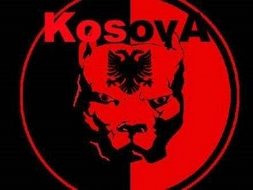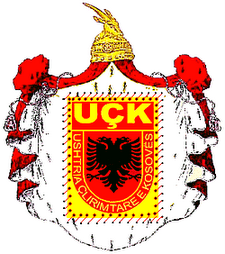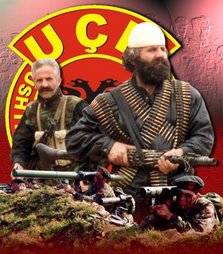


The history of the Kosovo is preferably interpreted of Albanians and Serbs as centuries long fight for this area. It is surveyed with the fact that the history of this area was often affected in crucial way by neighbouring great powers: Of Byzanz, the Osmani realm, Austria Hungary, Russia and the German Reich. Both peoples appoint yourself during the argument around the Kosovo to
 historical rights: 1000 v. Chr. inhabits the Illyrer nearly the
historical rights: 1000 v. Chr. inhabits the Illyrer nearly the  whole today's Balkans, from the north of the today's Greece until Dalmatien (Croatia). Albanian Ethnologen sees the Albanians as descendants of the old Illyrer. Starting from that 6. The Slawen on the Balkans spreads century. The illyrischen trunks are pushed to a large extent into the mountains and to the coast (Dalmatien). Of 12. up to 14. Century is the Kosovo principal item of the Serbian medieval realm. Their rule ends 1389 with the battle on the blackbird field. In the following
whole today's Balkans, from the north of the today's Greece until Dalmatien (Croatia). Albanian Ethnologen sees the Albanians as descendants of the old Illyrer. Starting from that 6. The Slawen on the Balkans spreads century. The illyrischen trunks are pushed to a large extent into the mountains and to the coast (Dalmatien). Of 12. up to 14. Century is the Kosovo principal item of the Serbian medieval realm. Their rule ends 1389 with the battle on the blackbird field. In the following  centuries - under the pressure of the osmanischen expansion - the main settling area of the Serbs shifts north of the Kosovo far into the region Belgrade. The conflict between Serbs and Albanians around the Kosovo began 19 with the decay of the osmanischen realm and on it following the develop
centuries - under the pressure of the osmanischen expansion - the main settling area of the Serbs shifts north of the Kosovo far into the region Belgrade. The conflict between Serbs and Albanians around the Kosovo began 19 with the decay of the osmanischen realm and on it following the develop ment of new national states end. Century. After that 1. Balkans war belonged the Kosovo 1912 to Serbia and Montenegro. In the time between the world wars it belonged to 2 to the first Yugoslav state, after that. World war to Titos communist Yugoslavia as part of Serbia, and starting from the year 1974 as autonomous Serbian province. With the decay of this many people state also the Kosovo question won sharpness, the Albanians required first more rights
ment of new national states end. Century. After that 1. Balkans war belonged the Kosovo 1912 to Serbia and Montenegro. In the time between the world wars it belonged to 2 to the first Yugoslav state, after that. World war to Titos communist Yugoslavia as part of Serbia, and starting from the year 1974 as autonomous Serbian province. With the decay of this many people state also the Kosovo question won sharpness, the Albanians required first more rights and finally the independence. The first force-free resistance of the Albanians changed under guidance of the UÇK into a continuous guerilla war between
and finally the independence. The first force-free resistance of the Albanians changed under guidance of the UÇK into a continuous guerilla war between  Albanian partisans and Serbian armed forces. The argument by force led 1999 to the air war of NATO against Serbia and to the invasion into the Kosovo. To the invasion of NATO during the war the refugees Kosovo Albanians returned, Serbs and Roma fled for their part or were driven out
Albanian partisans and Serbian armed forces. The argument by force led 1999 to the air war of NATO against Serbia and to the invasion into the Kosovo. To the invasion of NATO during the war the refugees Kosovo Albanians returned, Serbs and Roma fled for their part or were driven out .
.To 17. and 18. March 2004 came it in the Kosovo to a renewed outbreak of ethnical force. After a boy drowned in a river close of the ethnical divided city Mitrovica, - a report according to the Organization for Security and Cooperation in Euro - Albanian media with sensation reports heated t
 he tendency up. They suggested that an ethnical motivated crime committed by Serbs was present. These statements were groundless - for example according to estimates of the renowned internationally Crisis Group (ICG) -. In the consequence it came to country-wide rebellions of the Albanians, who were essentially directed against still in the Kosovo remained the Serbs. There were 19 dead ones (11 Kosovo Albanian and 8 Serbs), approximately 900 hurt. 700 houses of Serbs, Aschkali and Roma, ten administration buildings as well as approximately 30 Serbian churches and two monasteries were damaged or destroyed. Approximately 4000 humans were driven out, 82% of it were Kosovo Serbs, the remaining Roma, Ashkali, Kosovo Egyptians and Albaner. The rebellions were rather spontaneous, according to estimates of the ICG as organized. The authors were young people, political extremists as well as simple criminal ones. To 19. March 2004 communicated the German Secretary of Defense Peter Struck that the German Federal Armed Forces will send 600 additional soldiers into the region. Thus the German contingent in the Kosovo increased to approximately 3800 soldiers. NATO sent further 1100 soldiers to the safety device of
he tendency up. They suggested that an ethnical motivated crime committed by Serbs was present. These statements were groundless - for example according to estimates of the renowned internationally Crisis Group (ICG) -. In the consequence it came to country-wide rebellions of the Albanians, who were essentially directed against still in the Kosovo remained the Serbs. There were 19 dead ones (11 Kosovo Albanian and 8 Serbs), approximately 900 hurt. 700 houses of Serbs, Aschkali and Roma, ten administration buildings as well as approximately 30 Serbian churches and two monasteries were damaged or destroyed. Approximately 4000 humans were driven out, 82% of it were Kosovo Serbs, the remaining Roma, Ashkali, Kosovo Egyptians and Albaner. The rebellions were rather spontaneous, according to estimates of the ICG as organized. The authors were young people, political extremists as well as simple criminal ones. To 19. March 2004 communicated the German Secretary of Defense Peter Struck that the German Federal Armed Forces will send 600 additional soldiers into the region. Thus the German contingent in the Kosovo increased to approximately 3800 soldiers. NATO sent further 1100 soldiers to the safety device of the order.
the order.








